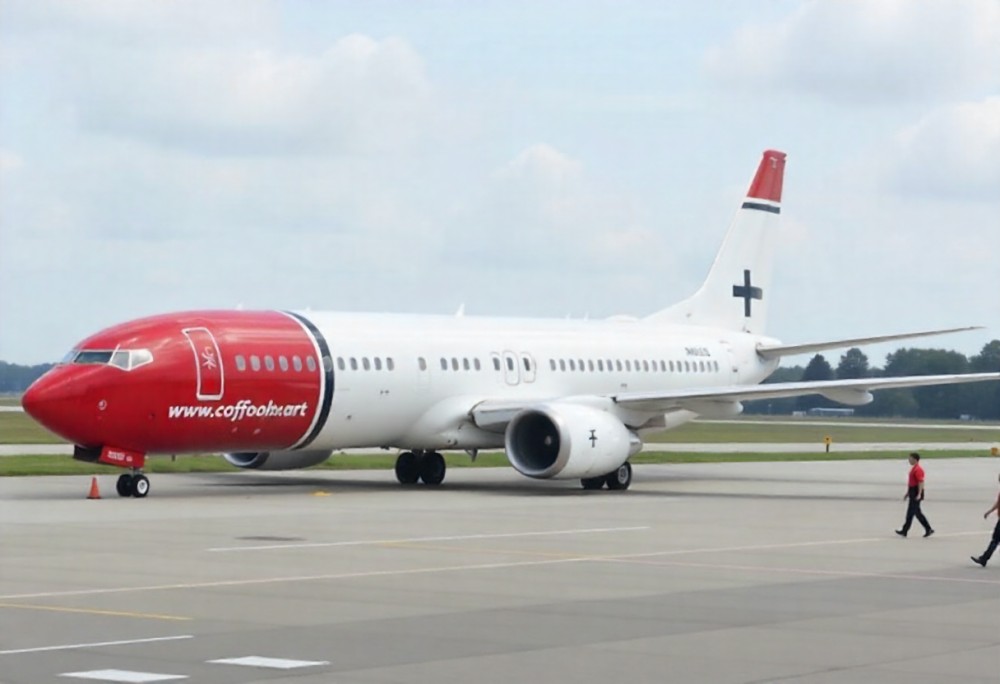Published on
October 11, 2025
Norwegian Airlines has won the contract to operate Denmark’s first “green domestic route” between Copenhagen and Aalborg, which will start in March 2026. At least 40% Sustainable Aviation Fuel (SAF) will be used on the route, which will be the first domestic SAF-powered flight of its type in the EU. The achievement reflects the airline’s dedication to reducing emissions in aviation and Denmark’s vision to become a front-runner in environmentally friendly domestic travel. Through leading this effort, Norwegian is showing that low-carbon solutions can be applied to high domestic air routes without reducing capacity or passenger service quality.
Strategic Collaboration with Key Partners
The project is made possible through a collaboration between Norwegian Airlines, AFSN, Danish Civil Aviation Authority (DCC), Shell Aviation, and Aalborg Airport. Under this partnership, SAF will be supplied and refueled directly at Aalborg Airport, leveraging existing airport infrastructure and ensuring seamless integration into daily flight operations.
This collaboration not only supports the technical deployment of SAF but also strengthens Denmark’s broader sustainability efforts within the aviation sector. The partnership serves as a model for other European countries, demonstrating that collaboration between airlines, airports, and fuel providers is essential for the adoption of clean aviation technologies.
Aalborg–Copenhagen Route: High Frequency, High Impact
The Aalborg–Copenhagen route is one of Denmark’s busiest domestic connections, with approximately 4,100 annual flights and 800,000 seats provided by Norwegian. By integrating SAF into such a high-demand route, the airline proves the practical viability of sustainable fuel solutions for high-frequency operations, a critical consideration for scaling eco-friendly aviation across Europe.
This route is expected to set a benchmark for environmental performance in domestic air travel and inspire other airlines to consider SAF adoption on major European routes.
A Bold Step Toward European Aviation Sustainability
Sara Neergaard, Director of Communications and Public Affairs, Norwegian Denmark, described the initiative as a “bold and necessary step” in demonstrating how aviation can reduce its carbon footprint. She emphasized that Norwegian aims to lead the way in sustainable practices and hopes the initiative encourages other European carriers to follow suit.
By showcasing SAF integration on a busy domestic corridor, Norwegian is providing a proof of concept for other airlines and governments, underlining that carbon reduction in aviation is achievable today, not just in theory.
Aalborg Airport’s Role in Advancing Sustainable Travel
Niels Hemmingsen, CEO of Aalborg Airport, highlighted the importance of the initiative: “This route proves that sustainability and aviation are not mutually exclusive. The collaboration demonstrates that real change is possible here and now.”
By facilitating SAF refueling, Aalborg Airport is playing a key role in enabling low-carbon aviation. This effort strengthens the airport’s position as a regional leader in green aviation infrastructure and highlights how airports can actively contribute to national and European sustainability goals.
Environmental Benefits and Industry Implications
The use of SAF on the Aalborg–Copenhagen route will significantly reduce CO₂ emissions per flight compared to conventional jet fuel. By demonstrating that low-carbon aviation is commercially viable, the project paves the way for other domestic and short-haul European flights to adopt sustainable fuel, helping the aviation sector meet EU climate targets.
This initiative also reinforces Norway’s and Denmark’s commitment to climate neutrality, supporting both national environmental policies and broader European Green Deal objectives.
Promoting Innovation and European Leadership in Sustainable Aviation
The Aalborg–Copenhagen SAF route is expected to influence the aviation industry across Europe, encouraging other countries and airlines to invest in sustainable technologies and green infrastructure. By demonstrating operational feasibility and safety, Norwegian is providing a blueprint for how airlines can incorporate SAF into existing flight networks.
This project also signals a shift in industry standards, where environmental performance is becoming a key factor in route planning, fuel procurement, and airport operations. Norway and Denmark’s leadership on this front strengthens Europe’s global position in eco-friendly aviation.
Impacts for Passengers and Tourism
For travelers, this initiative offers an opportunity to participate in sustainable air travel, choosing flights with a reduced carbon footprint. The route will serve both business travelers and tourists, making it easier for Denmark to maintain domestic connectivity while advancing green travel initiatives.
Moreover, the route will attract environmentally conscious travelers and enhance Denmark’s reputation as a sustainable tourism destination, aligning aviation operations with eco-tourism principles and climate-aware policies.
Charting a Green Future for European Aviation
Norwegian’s Aalborg–Copenhagen route, fueled by SAF, is a pioneer in green aviation in Europe. By integrating innovation, cooperation with airports and fuel suppliers, and high-density domestic flight frequency, the initiative creates a new benchmark for environmentally friendly flights.
This achievement proves not only that low-carbon aviation is possible but also profitable, and it is likely to motivate other Danish and European airlines and airports to adopt comparable sustainable solutions, further solidifying Denmark’s position as a green aviation pioneer.
